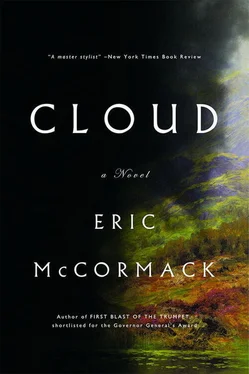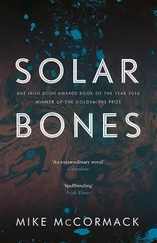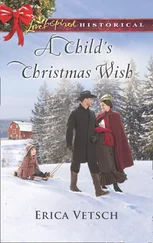I thanked her for it and assured her I’d tell her next time we met.
She sipped her coffee, watching me.
“So, now you know all about my father and his problem.
Some families seem to be cursed with just one awful thing after another — I fear mine may be one of them. You say you love me, but how much more could you put up with? Wouldn’t there be a limit to your tolerance?”
We were sitting on chairs opposite each other at the kitchen table. From the way the light came in through the window, I could see miniature reflections of myself in her eyes, as though I was already a part of her. So I assured her I didn’t care about her father’s addiction, or anything else about her family, for that matter. I loved her and I always would. I thought, surely this time she’ll say she loves me too.
But she didn’t.
So I surprised myself and went even further. I asked her to marry me. I liked the sound of that so much, I asked her again.
If I’d surprised myself, Miriam certainly didn’t look surprised. Her eyes became almost as enigmatic as that first time I’d seen them upside down on the rock. I begged her for an answer.
“Let’s not talk about it any more for now,” she said. “I have a lot to think about.” Soon after that, rain began to patter against the window and it was time for me to leave. Miriam put the book she’d chosen in a plastic bag.
“It’s already had more than its fair share of water,” she said.
I WAS CONSCIOUS of the weight of the book in my pocket all the way down to Duncairn. I kept thinking of that weird old man, her father — I now understood Miriam’s fascination with those “bizarre,” “out-of-the-ordinary” events that took place in the Uplands. She herself was right at the centre of one of them.
I also kept replaying, as I walked, the last moments of our conversation. She knew I loved her and she hadn’t laughed outright at my marriage proposal — that was the main thing. I had great hopes. My heart was light even as the rain came down heavier and heavier.
For the remainder of that day the rain didn’t let up and the wind strengthened. From my window I could see the faces of the three soldiers on the war memorial being battered without mercy. My mind should have been fully occupied, going over yet again the lessons in the book Sam Mackay had given me. Despite his words of comfort, I couldn’t help being anxious about the school term about to begin.
Yet at the same time I was thinking about how I’d blurted out that proposal of marriage to Miriam. Not that I was having second thoughts. It was just that I’d begun to consider realistically what marriage to her might mean. She was wonderful, but we’d have to live in that isolated house with her hideous, addicted father. Wasn’t it possible that in time I’d become bitter and resentful about restricting myself to such a life in a small town like Duncairn — even with Miriam — just when the whole, exotic world I used to dream of was now available?
But I put such thoughts out of my mind. I was in love— that was all that counted! Meeting Miriam Galt was like a great romantic story from an old book. In the next chapter she’d admit she loved me and would marry me and we’d be happy forever.
ONE TASK I settled down to that evening was the reading of the book Miriam had chosen for me from her father’s library.
The book was in very poor condition, as I’d noticed when she gave it to me. Embossed on the inside cover were the words “Property of the SS Derevaun .” I pictured some poor ship of that name, shattered perhaps on a coral reef, the books from its library drifting like butterflies amongst the eddies.
The title page was certainly legible, the typeface old- fashioned and big:

There were no dates or any other information. I flicked through the pages and found they were in reasonably good condition, but not a single one of the ten sonnets had survived their ordeal under water. The pages where they had appeared were blank, the words all dissolved into the ocean where the ship had met its fate.
I began reading:
Gentle Reader:
This is an old story of which there are many versions. I record here that which has been known to me since childhood.
It was mid-winter in an Uplands village which was not much more than a group of hovels. Johnny Reed lived in one of these hovels with his wife. They were very poor and not very happy, and lived mainly on kale soup. They had six children.
On one of these winter mornings, Johnny awoke and told his wife of a strange dream:
“I saw myself walking through the hills, along the path to the old Roman bridge. It was snowing, and I was carrying my long-handled shovel in my right hand. When I got near the bridge, I saw a withered alder bush in the bog fifty yards off the path. I felt compelled to go there and I began to dig. My shovel struck something with a clang. It was a big iron cauldron. I lifted it out of the hole and opened it. It was full of gold coins.”
The dream was so lifelike, Johnny was sure he knew the very spot where it happened. He told his wife he would go there right now and have a look, just out of curiosity.
So he took his long-handled shovel with him and headed up into the moors.
The day was cold with a winter fog thick enough to stop him from seeing more than fifty yards around him. Still, when he got to the path to the old Roman bridge, he could see the outline of the alder bush in the middle of a dangerous bog — just as in the dream. He stepped off the path and onto the soft earth of the bog, which was bare of snow.
He had to go carefully, testing one step at a time, so it took him a while to reach a little island of solid ground where the alder bush grew. It had almost no leaves now except for a few wilted survivors clinging on, as though it were summer still.
Johnny Reed got to work. He dug and dug, and after a while his shovel struck something with a clang. He kept digging and eventually uncovered the object. It was entangled in the roots of the alder, so it must have been there a long time. With his hands he brushed more dirt away from its top and saw that it was a cauldron with a lid on it. He tried to lift the lid off by its arched handle, but it seemed to be stuck and he did not have enough space to grasp it. So with his long-handled shovel he levered the entire cauldron out of the hole, noting how heavy it was.
He looked the cauldron over and saw that it was made of dark red cast iron with an intricate pattern around the top rim. Again he tried to lift off the lid, without success. He thought it might be screwed on to the top of the cauldron, so he thrust the handle of his shovel through the arch of the cauldron’s handle and turned it with all his strength. At last, the lid began very slowly to turn and eventually
popped off, causing Johnny to fall backwards. He got back up and looked into the cauldron. Nothing. There was nothing in it.
Johnny told his wife when he got back to the hovel, “See, not a gold coin, not any gold of any kind.” For he had brought the cauldron down from the moors so that she could see for herself. All she could see was the smooth dark red inside of a dark red cauldron the size of an ordinary kale pot.
So Johnny and his wife returned to living their normal lives. Time passed and their six children all grew up and married and went to live in other nearby hovels.
Twenty dull years went by, then something out of the ordinary happened again to Johnny Reed.
On a winter’s morning, there was a loud knock at the hovel door. Johnny opened it to behold a man in a bearskin riding coat and a tricorn hat, his horse haltered a few yards away. The man apologized for the intrusion. He was a traveller from England, a scholar studying the local customs and traditions of the Uplands. He had been trying to find the main road and had wandered astray in the bad weather. He was now hungry and cold.
Читать дальше












